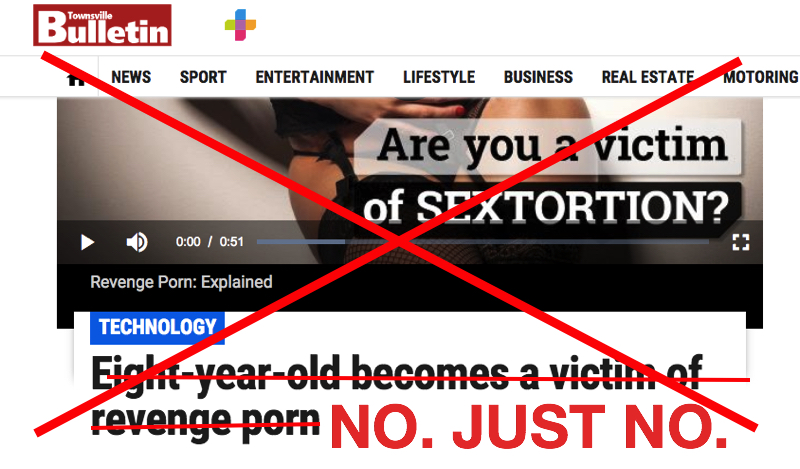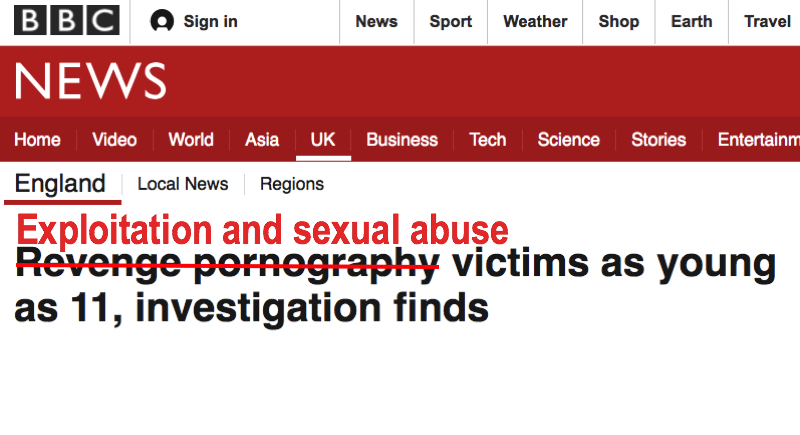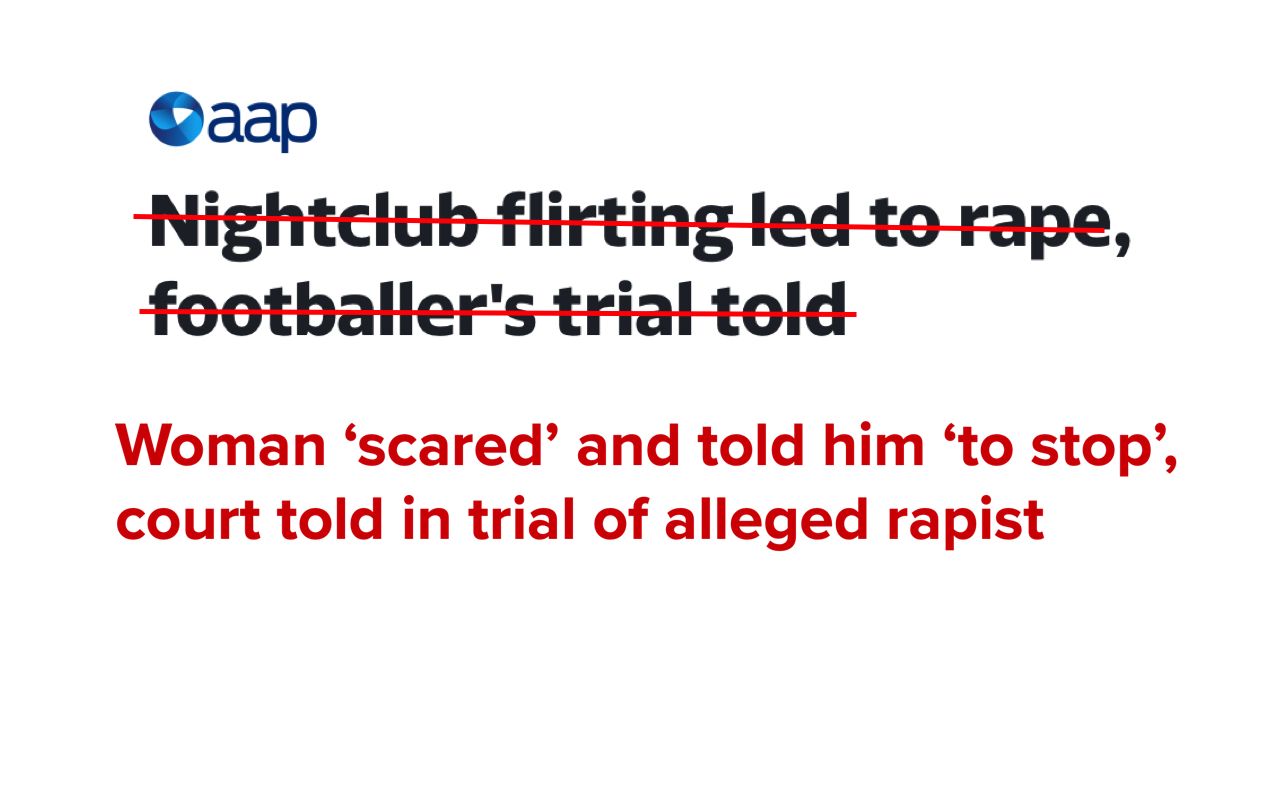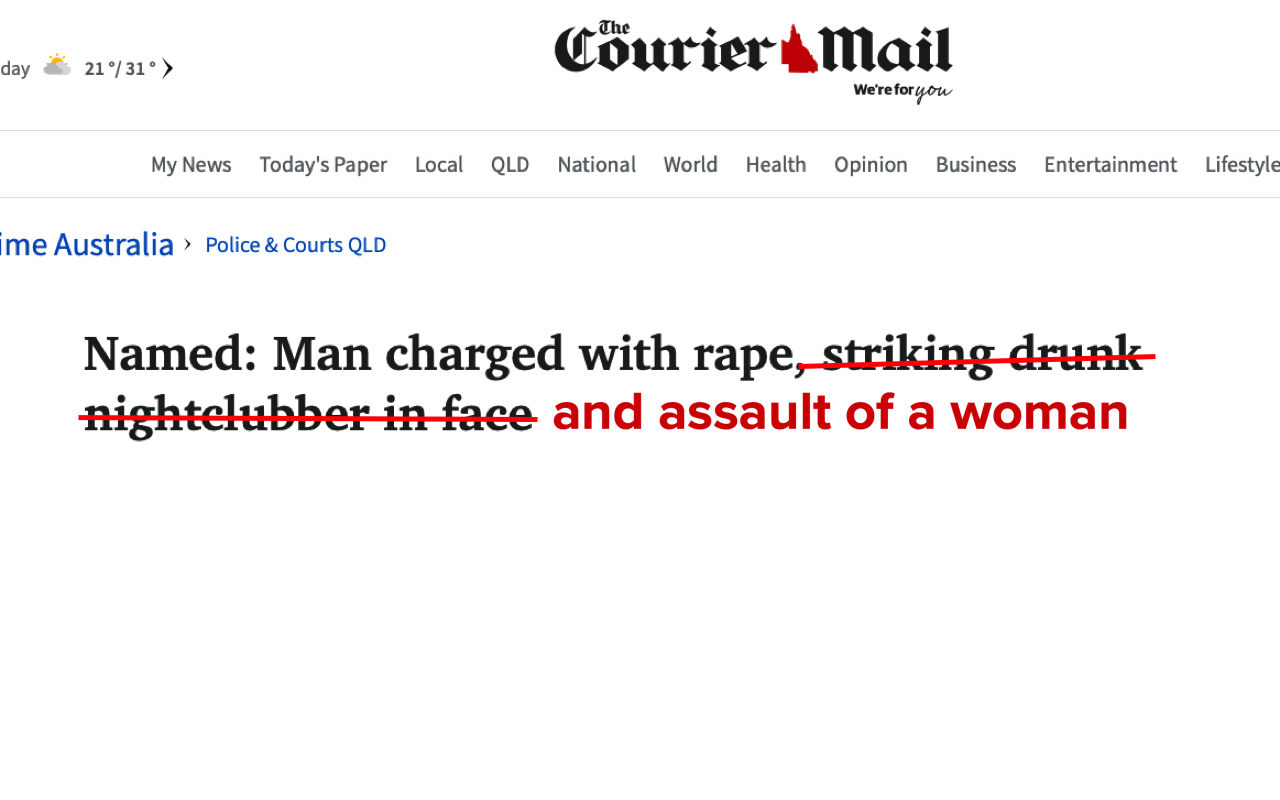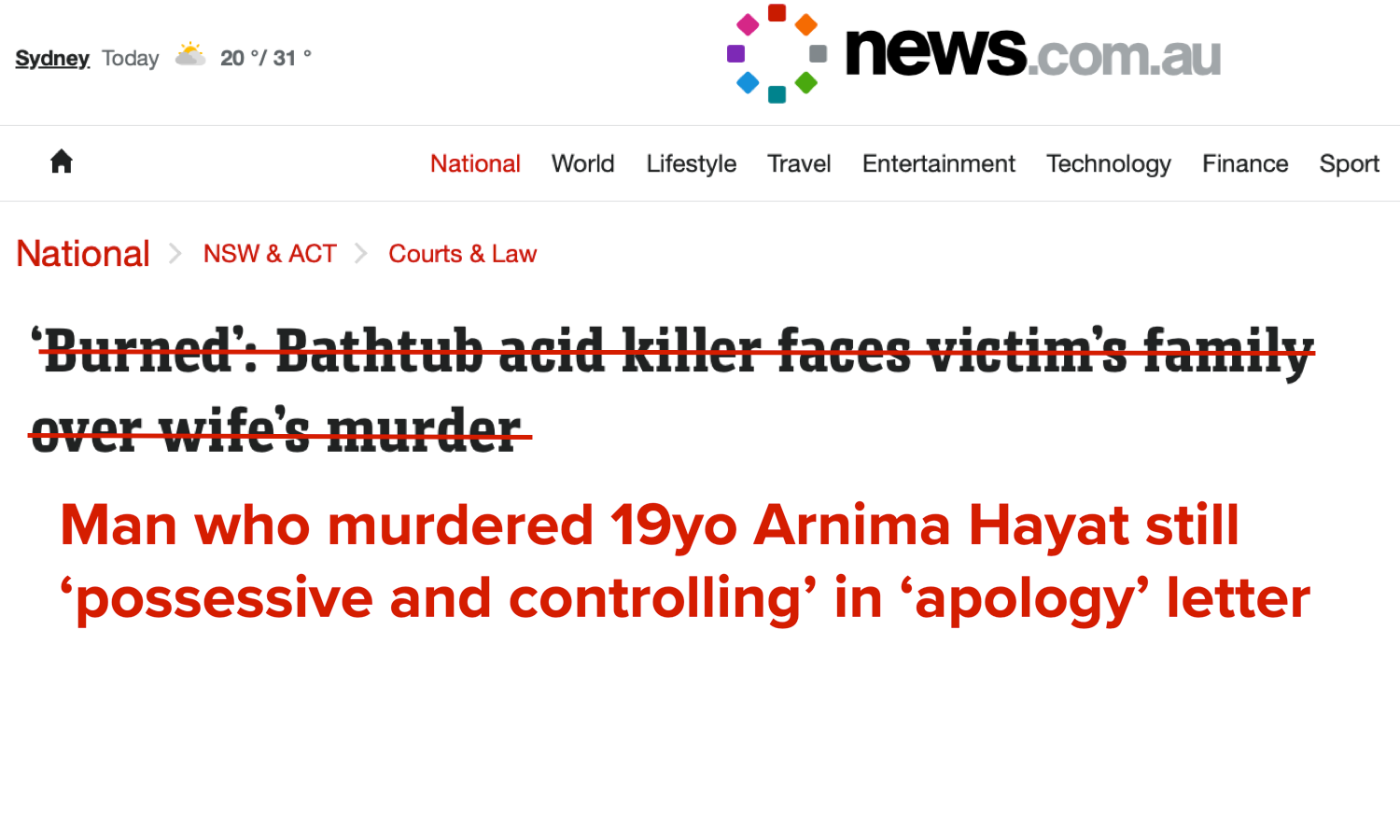Where do you even start with this one from The Townsville Bulletin, which was picked up from News Corp sites around the world, including News.com.au, The Daily Mail and The Sun, although there did appear to be a bit of confusion about how old the victim was.
And it wasn’t just News. The BBC ran it too.
“Revenge porn” of a eight year old child. Who even thinks in those terms? Revenge porn as defined “as the distribution of sexually graphic images of individuals without their consent”.
If the child was eight years old any images that fit this category are not “porn”, they are rape, abuse and exploitation. No one can have consensual sex with a child that young. It’s incomprehensible that anyone could even think of graphic images of a child that young in terms of “porn”.
The Townsville Bulletin was a particularly egregious presentation, given that it appeared under a video still of an undeniably adult, lingerie clad female body. This is clearly a sensationalised story about sex, not a story of sexual abuse and exploitation of children uncovered during an investigation into sexual abuse and exploitation of adults.
Children cannot have “sex”. Sex requires consent, children cannot legally or morally give consent so it is not sex. Rape, sexual abuse and sex are not the same thing and they can not be used interchangeably in headlines.
Here are the reasons this matters, in every case, with every headline.
The victim impact statements from child abuse trials are harrowing, a testament to the lifelong injuries suffered by people who were sexually abused as children. They are the litany of drug addition, alcohol dependence, gambling problems, depression, crippling anxiety, relationship breakdowns, suicidal thoughts, shame, self-hatred, mistrust of others and long term emotional damage so common in survivors of child sexual abuse. Children who have been abused are also significantly more likely to suffer further abuse, both as children and as adults.
The effects of sexual abuse of children then lead to the cycle of horror where victims become unreliable witnesses to their own abuse.
When the media, as it so persistently does, labels sexual abuse of children as “child sex”, we are weakening the public understanding of the extent and effect of such abuse. This has serious effects. A study conducted for the Royal Commission into Institutional Responses to Child Sexual Abuse found that juries who have a better understanding of the facts of child sexual abuse are less likely to make mistakes in their assessment of evidence given in court.
Children cannot have sex with adults. Sex requires consent and children, by definition, cannot give consent, so it’s not sex. It’s rape, it’s child abuse, it’s sexual abuse, it’s any number of terms that accurately describe a crime. An act perpetrated on an innocent victim, someone who was unable to defend themselves from the violence done to them, and who suffers for years, possibly decades, from the trauma caused by an adult’s choice to commit that violence.
That word choice is the key. Sex is a choice made by every person involved. Rape and abuse are a choice made only by the perpetrator. The victim has no choice.
No child has ever chosen to be abused. No child has ever done anything that caused or incited abuse. No child has ever wanted to be abused. No child has ever willingly participated in their abuse. No child has ever been in any way responsible for abuses committed against them by adults.
Despite this, many abused children believe they are willing participants. It is tragically common for abusers to manipulate vulnerable children into thinking the abuse is something that makes them special. Because they are children, they don’t understand that it is abuse and they don’t know what their abuser is doing is wrong. They only know that it was a secret, that they were the special ones for that moment because they were manipulated by their abuser.
That belief can become so central to the abuse that it can stay with the victims well into adulthood.
This is the tragedy of abuse, that so many victims do feel responsible for what was done to them. The shame that belongs only to the abuser is taken on by the abused child and incorporated into their lifelong view of themselves and their worth as a person.
Words matter.
When we name abuse as “sex”, we imply victims had a choice. We tell them the violence someone else chose to do to them when they were a child is the same as sex they can choose to have as an adult.
It isn’t.
Raping children is a horrific concept, we should feel a natural revulsion at the very idea. But we can’t protect vulnerable children or deter predators by diminishing the reality of sexual abuse. And we further damage survivors with the implication that the crimes committed against them are something less than a horrific and violent crime.
There are far, far too many of those victims. You could fill the MCG eight times over with the number of children living in Australia, right now, who have been or will be sexually abused. You could empty out Brisbane and entirely refill it with adults who have suffered sexual violence in their lifetime. All these people see headlines.
Sexual abuse is not sex. Children cannot have sex with adults. Stop calling it what it isn’t and start calling it what it is.
FixedIt is an ongoing project to push back against the media’s constant erasure of violent men and blaming of innocent victims. If you would like to help fund it – even $5 a month makes a big difference – please consider becoming a Patron
1800 RESPECT
Sexual assault, domestic and family violence counselling and support.
24 hours a day, 7 days a week.
Ph: 1800 737 732
www.1800respect.org.au
Suicide Call Back Service
24 hours a day, 7 days a week.
Ph: 1300 659 467
www.suicidecallbackservice.org.au
Kids Helpline
24 hours a day, 7 days a week.
Phone: 1800 55 1800
www.kidshelp.com.au
MensLine Australia
24 hours a day, 7 days a week.
Phone: 1300 78 99 78
www.mensline.org.au
Child Wise National Abuse Helpline
Mon-Fri: 9 am – 5 pm
Ph: 1800 99 10 99
www.childwise.org.au

